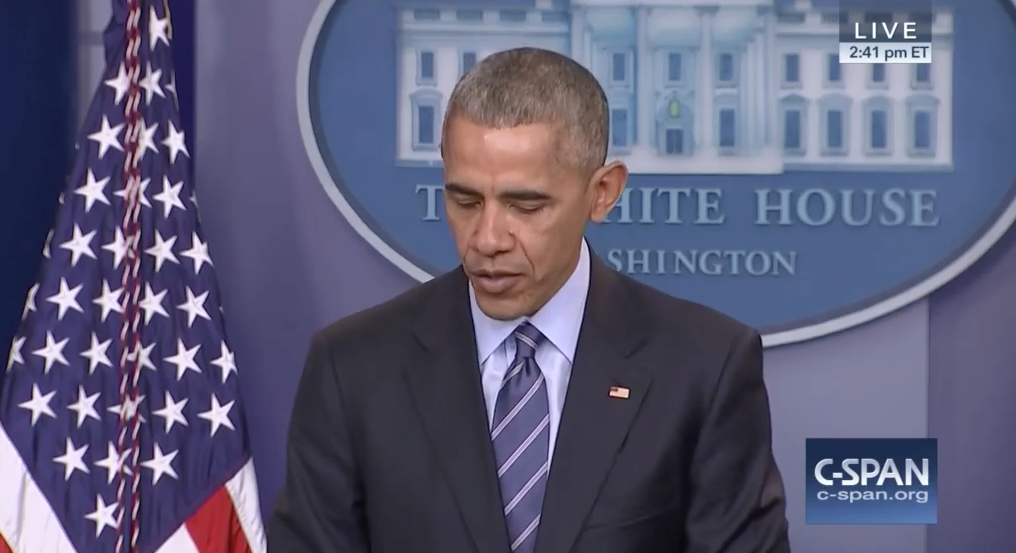The Folks Who Picked the Stupid Seven Banned Countries Say the Muslim Ban Is Stupid
Buried in a declaration written by a bunch of former national security officials in the Washington v Trump suit opposing Trump’s Muslim ban is this passage:
Because various threat streams are constantly mutating, as government officials, we sought continually to improve that vetting, as was done in response to particular threats identified by U.S. intelligence in 2011 and 2015. Placing additional restrictions on individuals from certain countries in the visa waiver program –as has been done on occasion in the past – merely allows for more individualized vettings before individuals with particular passports are permitted to travel to the United States.
These officials, which include (among others) former Deputy CIA Director Avril Haines, former Secretary of State John Kerry, former Homeland Security Czar Lisa Monaco, and former National Security Advisor Susan Rice argue that the practice is to tweak immigration rules based on changing threat patterns rather than impose broad bans not driven by necessity and logic. They argue that additional restrictions imposed on certain immigrants in 2015 were “in response to particular threats identified by U.S. intelligence.”
That’s really interesting because the 2015 change they reference is the basis of the Trump list that excludes countries that are real threats and includes others (especially Iran) that are not. Here’s how CNN describes the genesis of the seven countries covered by Trump’s ban.
In December 2015, President Obama signed into law a measure placing limited restrictions on certain travelers who had visited Iran, Iraq, Sudan, or Syria on or after March 1, 2011. Two months later, the Obama administration added Libya, Somalia, and Yemen to the list, in what it called an effort to address “the growing threat from foreign terrorist fighters.
The restrictions specifically limited what is known as visa-waiver travel by those who had visited one of the seven countries within the specified time period. People who previously could have entered the United States without a visa were instead required to apply for one if they had traveled to one of the seven countries.
Under the law, dual citizens of visa-waiver countries and Iran, Iraq, Sudan, or Syria could no longer travel to the U.S. without a visa. Dual citizens of Libya, Somalia, and Yemen could, however, still use the visa-waiver program if they hadn’t traveled to any of the seven countries after March 2011.
Now, Haines, Kerry, Monaco, and Rice might be excused for opposing Trump’s ban on seven poorly picked countries that themselves had a hand in picking. After all, the changes derived from bills presented by Republicans, Candace Miller and Ron Johnson, which got passed as part of the Omnibus in 2015. Obama can’t be expected to veto the entire spending bill because some Republicans wanted to make life harder on some immigrants.
Except that, as far as I understand, the Obama Administration extended the restrictions from the original law, which pertained only to people from or who had traveled to Syria and Iraq, to Iran and Sudan. And then (as CNN notes) they extended it again to three other countries, Libya, Somalia, and Yemen (notably, all countries we destabilized).
So it’s partly the fault of Haines, Kerry, Monaco, and Rice that Iran, which hasn’t targeted the US in real terrorism for decades, is on the list. It’s partly the fault of Haines, Kerry, Monaco, and Rice that countries with actual ties to terrorists who have attacked inside the US — most notably Saudi Arabia and Pakistan — are not on the list.
I have no doubt that the argument presented in the declaration (which was also signed by a bunch of people who weren’t part of Obama’s second term national security team) is right: Trump’s Muslim ban is badly conceived and makes us less safe. But one reason they likely know that is because their own visa restrictions were badly conceived and did little to make us more safe.
Trump is pursuing a lot of stupid policies. But we should remain honest that they largely build on stupid policies of those who came before.
Update: Corrected that this is not an amicus, but a declaration submitted with state opposition.


